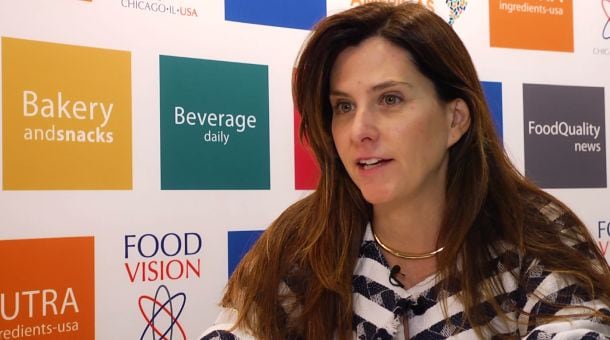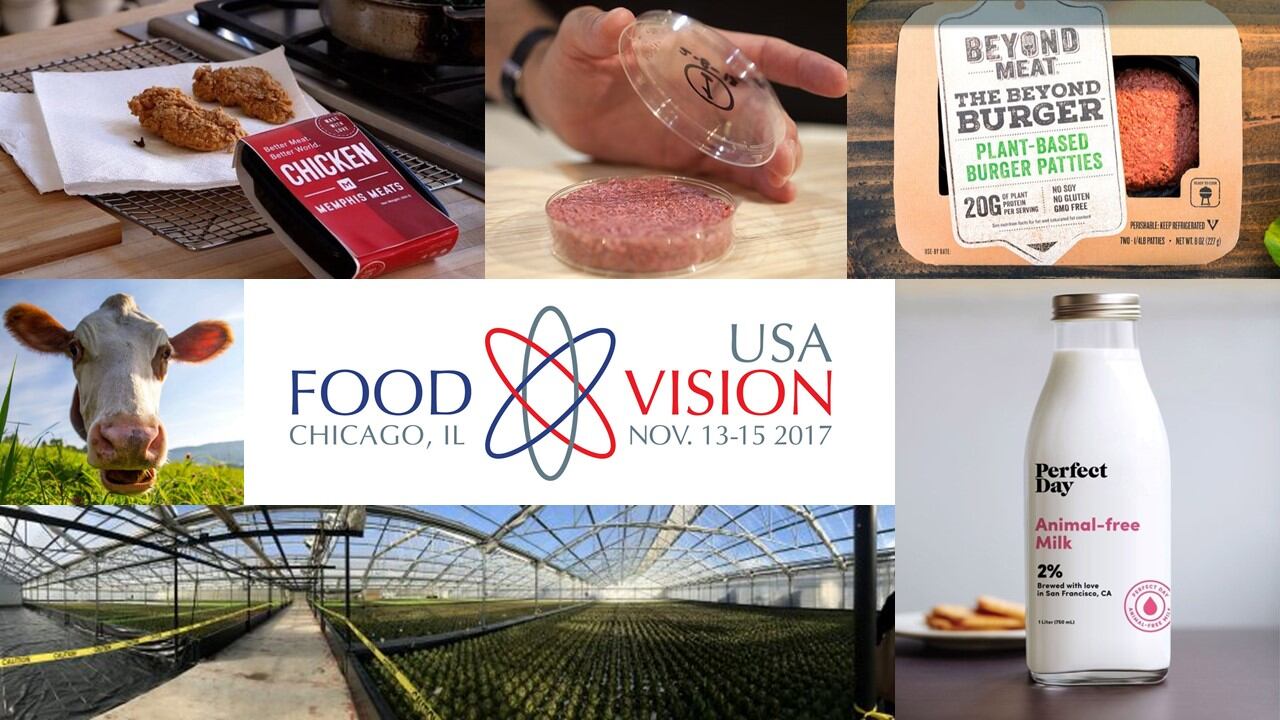The Series A funding round - led by venture capital firm DFJ (which has backed firms including skype, Tesla and SpaceX) was supported by a flurry of high profile investors* including Bill Gates and Richard Branson, taking Memphis Meats' total funding to $22m.
The San Leandro-based-based firm, which told delegates at the IFT show in June that it aimed to launch premium-priced clean meat products in high-end restaurants around 2019, and more mass market products in grocery stores around 2021, said the round “marks a major moment in which meat industry leaders and mission-driven groups have come together behind one company.”
Asked if the above timetable still applied, VP business development Steve Myrick told FoodNavigator-USA that: "Our Series A funds and the strategic value that the investor group brings us will allow us to accelerate our path to market. We are not pinpointing a date right now, but announcements will follow."
How will clean meat get to market?
As Cargill’s participation confirms, leading meat companies appear to see both plant-based ‘meat’ and clean (aka cultured) meat as an opportunity, not a threat, with Tyson Foods investing in pea-protein fueled brand Beyond Meat and several meat companies apparently talking to Hampton Creek about partnerships to accelerate clean meat production.
As Hampton Creek CEO Josh Tetrick observed last week, meat companies are obvious partners in that while they are no experts in cellular agriculture, they already have an established infrastructure for handling, packaging, distributing, selling, and marketing meat.
“Our investment in Memphis Meats is an exciting way for Cargill to explore the potential in this growing segment of the protein market,” said Sonya McCullum Roberts, president of growth ventures, Cargill Protein.
“Memphis Meats has the potential to provide our customers and consumers with expanded protein choices and is aligned with our mission to nourish the world in a safe, responsible and sustainable way.
“We are committed to growing our traditional protein business and investing in innovative new proteins to ultimately provide a complete basket of goods to our customers.”
Asked about the nature of the 'other food industry giants' in the round, Myrick told us: "We had some investors join our round who did not wish to be disclosed publicly, but have very large businesses in multiple parts of the food value chain, including production and distribution."
“Investors have been watching this space for years, and Memphis Meats has emerged as the clear leader.”
Steve Jurvetson, DFJ Partner (who will join the company’s board of directors).
The mechanics of clean meat
Memphis Meats, which unveiled a meatball in February 2016 and chicken and duck produced from poultry cells without raising animals in March 2017, said the cash injection would be used to quadruple its headcount, and accelerate its work to scale up production.
It has not gone into detail about the nature of the scale up process for producing its wares, but Myrick told FoodNavigator-USA earlier this year that production costs were continuing to come down.
"We've learned a lot and we are continuing to reduce costs on a really rapid trajectory and we've had positive declines faster than we even expected to over the last several months."
While they may initially carry a premium price tag, Memphis Meats was confident that it would over time be able to produce meat at parity or below the price of conventionally-produced meat, in a manner that is greener, cleaner and kinder, added Myrick.
It has also made significant progress in validating an alternative to animal serum for the growth medium, the nutrient bath the cells need in order to survive and grow, he added.
"We've validated a production path that does not require serum, and we are in the process of rolling that out into everything we do."
(Fetal bovine serum - which pioneers in the clean meat space growing beef have typically used - is derived from blood extracted from a fetus after it is removed from a slaughtered dairy cow, which is not consistent with the philosophy underpinning cultured meat, and can also be inconsistent from batch to batch, and is in limited supply.)

VIDEO: Will we need a new regulatory framework for clean (cultured) meat?
Producing ‘clean’ meat by culturing cells – instead of raising or slaughtering animals - is a new frontier in food production, but will it require a new regulatory framework, and what should we call it? Elaine Watson caught up with food law attorney Rebecca Cross at the IFT show to find out more. Watch the video HERE.
Cleaner, greener, kinder?
While beef has garnered most of the attention to date, chicken is the most popular protein in America, and represents a $90bn market opportunity, while mainland China consumes more than 6bn pounds of duck a year, said CEO Uma Valeti, M.D.
“Chicken and duck are at the center of the table in so many cultures around the world, but the way conventional poultry is raised creates huge problems for the environment, animal welfare, and human health. It is also inefficient. We aim to produce meat in a better way, so that it is delicious, affordable and sustainable.”

What's the path to commercialization for clean meat?
Cell lines, growth media, scaffolding, bioreactors...
So how does the process work?
The cells Memphis Meats is using come from adult stem cells or 'satellite' cells that are self-renewing, such that they will divide and grow indefinitely, said Myrick, who confirmed that the company is working with cells which can differentiate into all of the cell types necessary to make meat taste, look, cook and behave, like meat (eg. fat, muscle, connective tissue etc).
It's too commercially sensitive, however, to describe the nature of the bioreactors in which the meat is grown, and what ‘scaffolding' the company is using such that the cell lines grow in a way that ensures its ‘meat’ replicates the texture, taste, and appearance of conventionally-produced meat (eg. with the right ratio of fat, muscle and other cell types).

“This is a momentous occasion for anyone who wants to see a food system that is safe, good for the planet and animals, and completely satisfying to consumers."
Bruce Friedrich, Executive Director, The Good Food Institute
The business model: We are exploring multiple revenue models
As for the business model – whether Memphis Meats will license its technology, partner with a big food company or look to become a major CPG company in its own right, for example – the immediate priority is to get products to market, but the company is having conversations with several potential partners, confirmed Myrick this morning.
"We are exploring multiple revenue models going forward, and in the meantime, we are preparing to bring products to the market under our brand."
As for the terminology, ‘clean meat,’ ‘lab-grown meat,’ ‘cultured meat’ or something else, consumers (and regulators) will probably decide, although Memphis Meats likes the 'clean energy' analogy as the meat is more environmentally friendly and will also be ‘cleaner’ in a literal sense in that it will be free of antibiotics, fecal matter, pathogens, and other contaminants found in conventional meat.

The economics of clean meat production
So will Memphis Meats and others in the embryonic field of clean meat production – a field which has its roots in regenerative medicine and tissue engineering but is attempting to operate on a completely different scale – really be able to bring costs down to match those of regular meat production?
Click HERE to get a perspective from Liz Specht, PhD, senior scientist at the Good Food Institute, who says that when you break the process down into four components – cell lines, growth media, scaffolding, and bioreactor scale up - the biggest challenge is probably the bioreactor scale up, although every stage has unique challenges.
*Investors in the round – led by DFJ - include Cargill, Bill Gates, Richard Branson, Atomico, New Crop Capital, SOSV, Fifty Years, KBW Ventures, Inevitable Ventures, Suzy and Jack Welch, Kyle Vogt, Kimbal Musk, and multiple research institutions.
Interested in clean meat?

GFI senior scientist Dr Liz Specht and Hampton Creek's director of cellular agriculture Eitan Fischer will give delegates at FOOD VISION USA 2017 the lowdown on clean meat, while Alex Lorestani will explain how Geltor is producing gelatin without animals. See the latest speaker list HERE .
